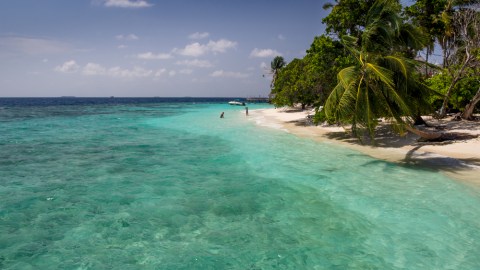Trouble in Paradise: Island Nations Could Be Underwater by 2050

What’s the Latest?
A Tuvaluan granted residency by New Zealand’s government could be the first climate change refugees granted asylum by a foreign state, reports The Washington Post. Tuvalu, like other island nations such as Kiribati and the Marshall Islands, sits mere meters above sea level. If current trends related to climate change continue, rising waters will submerge these islands and other low-lying areas in the next 30 to 50 years. An estimated 150-300 million people could be displaced by 2050.
What’s the Big Idea?
Last month, I wrote about the imminent crisis facing the world with regard to the “climate displaced.” The Post article linked above ponders what an era of climate refugees will look like. Rick Noack, who penned the piece, makes sure to highlight one key example of the international community’s unpreparedness:
Those threatened by sea-level rise, droughts or other natural catastrophes face an epochal problem: Victims of climate change are not recognized as refugees by the International Refugee Convention.
The case of the Tuvaluan family is unique for a variety of reasons (for the sake of brevity, I recommend reading about them in the article) but the tribunal’s decision reference climate change in its decision could be a first step toward building an international strategy for how to deal with the impending dilemma.
Give the article (linked again below) a read and let us know what you think.
Read more at Washington Post
Photo credit: atiger / Shutterstock
Why Climate Change is a Human Rights Issue: A Big Think Interview with former Irish President Mary Robinson




